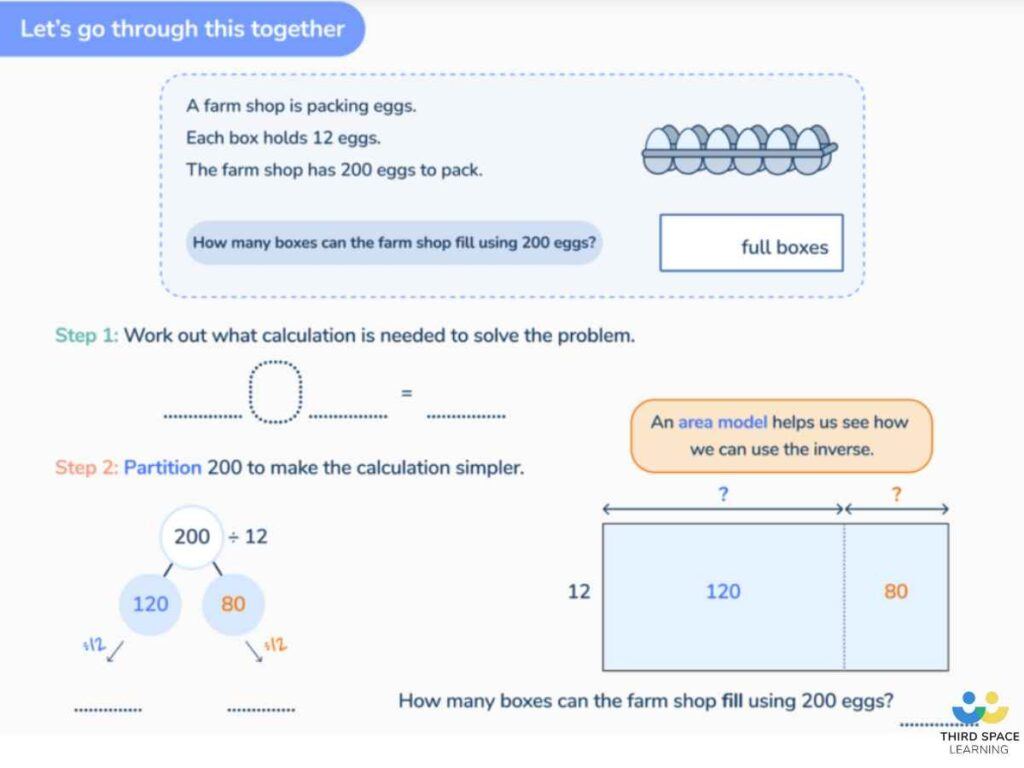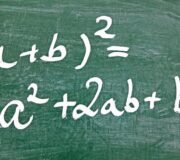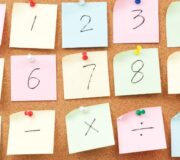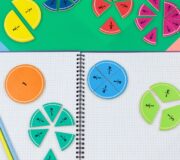Help I’m Teaching Year 6! How to Ace Your Year 6 SATs Revision This Year
So, fortunate Year 6 teacher, this year it’s you with the Year 6 SATs revision brief. It’s you that’s teaching Year 6 Maths and English (as well as Art, History, PSHE etc). Maybe you’ve done it before or maybe it’s your first time, but you know that this year your entire Year 6 SATs revision, your pupils’ test technique, your termly assessments and predicted grades, are all focused on one week in May.
Imagine you’ve said good-bye to the previous Year 6 teacher (they’ve run off to Brazil, won the Euro Millions, retrained to be a prison guard, or all of the above) and now, this year’s SATs are all on you!
SATs 2024: Stay up to date
Join our email list to stay up to date with the latest news and free resources for SATs 2024. As usual our expert teachers will be on hand to provide on to one tuition support, revision resources and analysis of the SATs papers in 2024 and the SATs results 2024 when they’re available.
Here’s what you need to know.
- How am I supposed to lead Year 6 SATs Revision?
- Year 6 SATs revision – Maths: diagnosis and assessment
- Year 6 SATs revision – English: Pitch and expectations
- Year 6 SATs revision in a nutshell
- How to manage your practice Year 6 Maths and English tests
- Exam technique for Year 6 Maths SATs and English SATs
- Countdown to this year’s KS2 SATs
- Teaching Year 6 During SATs Week
- Top tips for Year 6 SATs revision
- Useful links for Year 6 revision
- Year 6 teachers light the candle on the cake
How am I supposed to lead Year 6 SATs Revision?
Running through your head might be something like ‘Crikey! What the blinkin’ heck am I supposed to do? How do I get these little cherubs ready for the bloomin’ SATs? What the heck are the best ways to teach in Year 6? What don’t I already chuffin’ know?!” … or words to that effect.
I have known several teachers recently who have been asked to teach Year 6 Maths and English at short notice having never taught in that year before and I wanted to help anyone who has to go through this in the future.
But not alone.
So I gathered together a crack team of experienced Year 6 Maths and English teachers from a range of schools @mcmahonpaddy, @MrTRoach, @hil3494 and @crazycath1 – and christened them my Year 6 Avengers.
They were to help me, @gazneedle, come up with some key points that all teachers new to Year 6, and particularly the art of Year 6 SATs revision, need to know. We sat and chatted for an hour or so and here’s what we came up with.
Year 6 SATs revision – Maths: diagnosis and assessment
- Don’t take anything for granted when it comes to Year 6 maths revision. Start from the beginning and move on quickly. Just because they have been taught it in previous year groups, doesn’t mean they remember it.
- Go back and make sure that what should have been taught is secure. Make sure with Year 6 SATs style questions. (Third Space Learning has lots of these to download for free: Year 6 Diagnostic Quizzes, free SATs papers and Year 6 SATs questions by topic, Free SATs Papers to Get Year 6 Ready for KS2 SATs)
- Use resources like Testbase to practise test questions for starters to lessons. Show the children that these questions are nothing to be afraid of. Make them everyday occurrences and reduce the fear and anxiety.
- Use White Rose planning. The problem solving and reasoning tests are great preparation. Third Space is one of many organisations producing high quality White Rose Maths resources available. Find the ones that work for you. The ‘Maths No Problem’ books also matches up with the White Rose planning. It has a textbook and workbook for guided practice / independent work.
- Target Maths is useful – it has differentiation included in it and is useful for pitching work at the right level.
- Single stage assessments from Assertive Mentoring have end of year expectations and this can be used to teach anything that is not understood.
- Try to get through the whole Year 6 Maths curriculum before Easter then do your Year 6 SATs revision (and any maths booster lessons) in the weeks after Easter and before the Year 6 Maths Reasoning and Arithmetic papers in May.
- Although you’ll need the arithmetic practice to get high marks in the Year 6 arithmetic test, keep in mind that your class will always benefit from working through more Year 6 SATs word problems. That tends to be where the marks drop off, and who know what the examiners will think up this year.
- Get your Year 6 Maths catch up and booster interventions off to a flying start with these Year 6 revision boot camp posts on how to teach Year 6 Maths
- If there are children who need more intensive support to be sure of reaching ARE in Maths at the end of Year 6, then give your head a clear plan and proposed budget for the additional resources you’ll need to do this. Third Space’s Year 6 SATs interventions double ordinary rates of progress in Maths but other primary school intervention programmes are available! Our online one to one SATs revision tuition is uniquely tailored to each student to fill the gaps in their learning and help them succeed in the SATs exams.

[Free] Year 6 SATs Parents Meeting Powerpoint
All the key information set out clearly in a way to inform your Year 6 parents. Editable and adaptable for your own school context
Download Free Now!Year 6 SATs revision – English: Pitch and expectations
- Find texts that challenge the best children in your class and pull the others up to that level rather than easier texts.
- Answers HAVE to be precise and exact. In the past, teachers would be able to say ‘weeeeeelllll… I kind of know what they mean’ and give them a mark. Now, answers have to be exact, precise and detailed otherwise children will not be given a mark. It is a tough love that you must administer, but it is better to be honest with your class and practice being exact.
- When using comprehensions, write complete sentences. Children have to be very specific. They are not allowed to just be able to get the ‘gist’ of the piece of writing now, they have to be accurate.
- Have a read of Reading Reconsidered by Doug Lemov. Use RIC(Retrieval, Interpretation, Choice) with high quality, difficult texts daily to encourage detailed answers.
- Read different genres: newspaper articles, biographies, interviews, magazine articles, etc.
- Use the question stems from Maddy Barnes to generate questions at a suitable pitch.
- Use the appendix from the national curriculum for grammar. Look for these aspects in ALL year groups.
- Grammar should be taught in context with a high quality text.
- Model your writing so that it includes everything that is needed (use the interim teacher assessment frameworks as your guide), even to greater depth. Don’t make a simpler text. All children are expected to be at least at the expected standard.
- Don’t differentiate texts. They all have to take the test at the end of May.
- Writing – find out what the kids like and aim grammar and writing through that so they are engaged.
- Use videos from the Literacy Shed to engage and develop their writing. Use hard texts with complicated sentences to show them how they should be used for effect.
- Practise sentence games, for examples, the ones in Pie Corbett’s Jump… series of books.
- Write every day.
Year 6 SATs revision in a nutshell
1. Talk to your colleagues in other year groups. You can’t be expected to make up the lost ground from previous year groups so talk to your colleagues in other year groups to ensure they are teaching what they are supposed to be teaching. No longer can the Year 6 teacher be expected to pull it out of the bag as has happened in some schools in the past.
Read this: Why Your SATs Interventions Shouldn’t Start In Year 6
2. Focus on progress. Progress for all children is more important now than ever before for teachers and schools. Schools are being judged increasingly on the progress that their children make, so every child counts. Use the primary accountability document and @jpembroke’s value added calculator to know exactly what each child is expected to attain at Year 6 Maths and English.
Read this: The Myth of Expected Progress: Life after Levels in Primary
3. Make a Year 6 SATs revision plan and stick to it. Your class timetable should stay as similar as possible. Think about how you can get Year 6 Maths and English into other areas of the curriculum. Use the other areas to stimulate the children. Get grammar into art! Start as early as possible!
Read this: Year 6 SATs Revision Planning
How to manage your practice Year 6 Maths and English tests
- When planning to do practice tests, block out a week at a time, like a Key Stage 2 SATs week. Always complete them in the mornings when children are at their most alert.
- Always complete at least one of your practice papers before Christmas so the children don’t feel overwhelmed when taking a test for the first time. Mark the maths test and SPaG together with the children so they can see how it should be answered.
- Complete a test at the end of the half-term after Christmas and, again, mark with the children.
- Complete 1 or 2 tests in the half-term before Easter depending on the length. Complete the final practice test 2 weeks before the SATs.
- When you’ve used all the previous past papers from the national SATs 2016 – SATS 2019, seek out free SATs papers for KS2 .
Exam technique for Year 6 Maths SATs and English SATs
You’ll need to teach your Year 6 test technique – it makes a big difference.
- Show them explicitly how to answer specific types of questions
- Find and copy one word
- You can turn the paper for geometry questions
- Make sure pages are not stuck together
- Watch the clock
- Check and check and check your work again
- Always try – never sit idle in a test
- If children are taking five minutes on any question, leave it. Move on to the next question and come back to it if you have time
- Focus on the easy questions and easy texts first. And build up their stamina in maths.
Countdown to this year’s KS2 SATs
Application for extra time for the KS2 SATs usually opens in January each year. Make sure you fill in the application form correctly.
In the week before SATs, just give your Year 6 classes SATs revision on the topics that your class have found the trickiest to remember. Use the carrot of ‘summer is going to be great’.
Keep your class on board!
Make sure you build in breaks in English/Maths and try to keep some ‘creative’ subjects, don’t drop the school clubs. The children need down time for the Maths and English to embed.
Read this: Dear Year 6 Teacher: What to do in the weeks before KS2 SATs
Teaching Year 6 During SATs Week
Make tests as comfortable as normal for the kids. Do the tests in the classes they are normally in. Don’t decamp to the hall. In some schools, teachers (not TAs) come off timetable for SATs so that kids feel comfortable with them.
The classroom is divided into quarters and teachers are assigned tables so children know which teacher will read to them and don’t have to wait for a long time before anyone gets to them. This is to reduce their anxiety.
Do something off topic in SATs afternoon so your class can relax. Don’t cram Year 6 with SATs revision in the afternoon. Try cricket, PE, art or any ‘fun’ activities to keep the mood light and to remind your class that school can be fun. Give your class breakfast in the morning during SATs week when they come in to relax. Repeatedly tell your class to do their best. They have nothing to worry about at all. Do not, under any circumstances, pass on any anxiety that the staff may have to the children.
Read this: 5-step game plan for KS2 SATS week
And finally…I asked each teacher for their final top tips for teachers new to Year 6.
Top tips for Year 6 SATs revision
- Gather evidence from writing early
- Keep children focused and motivated in light of the end of Key Stage expectations
- Get the balance right
- Don’t presume things that have been learnt are still understood
- Teach them test technique
- Make tests as comfortable as possible for children
- Pitch work as high as possible – higher than your highest children and pull others up
- Find out what the children can’t do and plug the gaps
- Write every day
- Expect the highest standards in their work
- Continue to teach PE and art. Kids love it
- Don’t be alone. Speak to other teachers and SLT
- Be honest: with SLT and parents so there are no surprises
- Routines are key. Get them right at the beginning of the year and use them throughout
After reflecting on this conversation with some great teachers, I think that many of these principles can be applied across the school. High expectations, writing every day, not presuming previous learning is still understood and developing good routines are not just for Year 6. These, and many more of the key ideas from this conversation, can be, and SHOULD be, used throughout school.
Read more tips on SATS revision made easy.
Useful links for Year 6 revision
- The Best Free KS2 SATs Revision Resources (Maths)
- 2023 SATs Papers Maths Question Breakdown and Analysis
- 2022 SATs Papers Maths Question Breakdown and Analysis
- 2019 SATs Papers Maths Question Breakdown and Analysis
- 2018 SATs Papers Maths Question Breakdown and Analysis
- 2017 SATs Papers Maths Question Breakdown and Analysis
- DFE Website with all previous SATs papers
Year 6 teachers light the candle on the cake
To finish, I would like to borrow a metaphor from @moonmaddy:
“EYFS should be making a list of ingredients and going to the shop to buy them, KS1 should be mixing the ingredients and baking them, KS2 should be taking it out of the oven and placing the icing and sprinkles on top of the cake and Year 6 teachers should be lighting the candle on top. Without the support of the whole school, Year 6 teachers cannot light the candle.”
My final piece of advice would be to keep reflecting on your experience teaching preparing pupils for the new curriculum KS2 SATs, and to keep asking questions, of yourself, of your staff and of the children.
Good luck for when you get the Year 6 call! You can do it!
A version of this article originally appeared on Gaz Needle’s blog and has been republished with his permission
How Third Space Learning Can Help You Prepare For The Year 6 SATs
With a number of primary school teachers in the team here at Third Space Learning, we understand how busy and stressful the run up to SATs can be, and so we are here to help. Our dedicated KS2 Online SATs Revision Programme can help your school to raise maths attainment levels with targeted support for Year 6 pupils, and our one-to-one tuition sessions are a fantastic way to get additional help to the pupils that need it most in this important period of the school year.
DO YOU HAVE STUDENTS WHO NEED MORE SUPPORT IN MATHS?
Every week Third Space Learning’s specialist primary maths tutors support thousands of students across hundreds of schools with weekly online 1 to 1 maths lessons designed to plug gaps and boost progress.
Since 2013 these personalised one to one lessons have helped over 150,000 primary and secondary students become more confident, able mathematicians.
Learn how tutors encourage mathematical language or request a personalised quote for your school to speak to us about your school’s needs and how we can help.

![[Free] Year 6 SATs Parents Meeting Powerpoint](https://thirdspacelearning.com/wp-content/uploads/2019/07/Year-6-SATs-Presentation-for-Parents.png)



